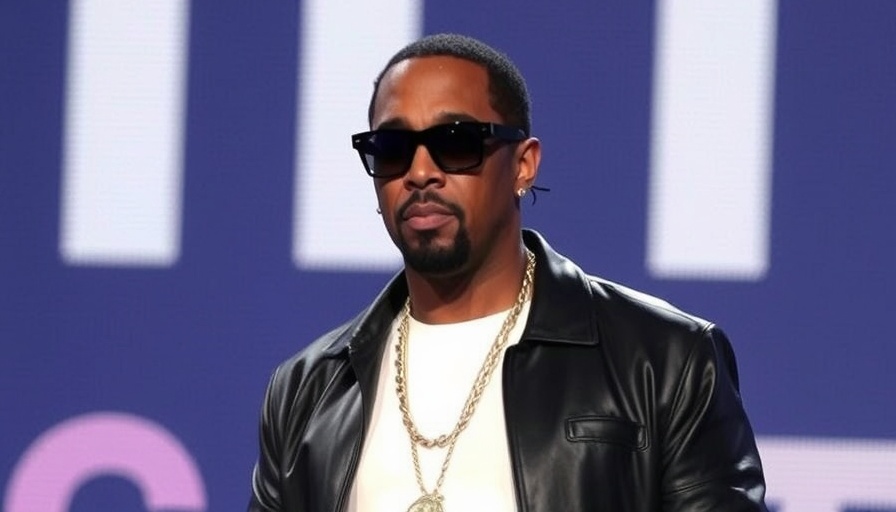
Shocking Allegations Unravel in the Diddy Trial
The ongoing trial of Sean “Diddy” Combs has captivated many as disturbing testimonies surface about his alleged sexual assaults and coercive behavior. Combs, a well-known figure in the music industry, faces serious charges that connect years of reported abuse to a broader scheme of racketeering and sex trafficking. Under the pseudonym Mia, the second witness has provided harrowing accounts of her time working for Combs from 2009 to 2017, shedding light on the alarming power dynamics at play.
Mia's Testimony: A Painful Retelling
Mia described her experience with Combs as a mix of friendship and terror, with the music mogul alternating between affectionate gestures and humiliating behavior. Her testimony revealed a deeply ingrained fear, highlighting that her predicament was exacerbated by the power imbalance intrinsic in celebrity culture. “He treated me like a worthless piece of crap,” she shared, illustrating how control was exercised not just physically but psychologically. This manipulation created an environment where speaking out against his actions felt impossible. Her recount was filled with moments of fear and degradation, a painful illustration of how celebrity status can shield abusive behavior.
The Impact of Celebrity on Justice
Mia’s experiences raise critical questions about the intersection of fame and justice. She expressed disappointment in previous encounters with law enforcement, illustrating how officers often appeared charmed, viewing Combs as a star rather than a potential perpetrator. This dynamic speaks volumes about societal challenges in taking allegations seriously when they involve high-profile individuals. Fear of retaliation and disbelief can impede justice, particularly in cases steeped in power disparity like that of Mia and Combs.
Enabling Environments: The Dark Side of Success
The trial sheds light on how certain industries, notably entertainment, can become breeding grounds for exploitation. The culture around celebrities often romanticizes their lifestyles while overlooking toxic behaviors. Mia’s testimony, which lacked discussions of extravagant parties but covered personal assaults, confronts the disturbing reality behind the music industry's allure. There’s a stark contrast between the glitz of celebrity life and the pain endured by those working behind the scenes.
A Cultural Shift Towards Accountability
As the trial continues, societal awareness of abuse and a cultural shift towards accountability are in the spotlight. The discussions surrounding Mia’s allegations evoke a broader movement where victims feel increasingly empowered to share their stories. This high-profile case aligns with a larger narrative—one that demands industries to confront and rectify abuses of power.
Exploring Solutions and Support Systems
As the public processes these developments, it’s crucial to consider potential solutions and support systems for victims of abuse. Comprehensive training for law enforcement and industry insiders could help prioritize the dignity and rights of victims. Implementing safer reporting mechanisms, ensuring confidentiality, and providing resources for victims can help others escape the cycle of abuse.
Where Do We Go From Here?
The revelations from Mia’s experience demonstrate the urgent need for cultural change within the entertainment industry. It’s not only about holding individuals accountable but also about creating environments where abuse can be reported, validated, and addressed. As the trial unfolds, observers are left to reflect on the lessons that can be extracted for future generations, ensuring that allegations like Mia’s serve not only as warning signs but as catalysts for meaningful reform.
In light of the ongoing discussions surrounding accountability and abuse, it’s essential for all readers—especially digital nomads and those immersed in exploring the culture of varying locales—to engage with these narratives critically. Understanding the deeper context of human interactions in both personal and professional environments can foster a more empathetic world.
 Add Row
Add Row  Add
Add 




Write A Comment